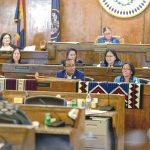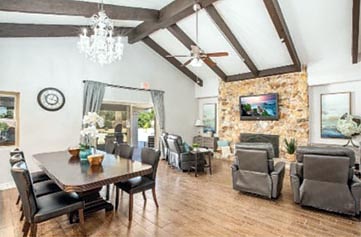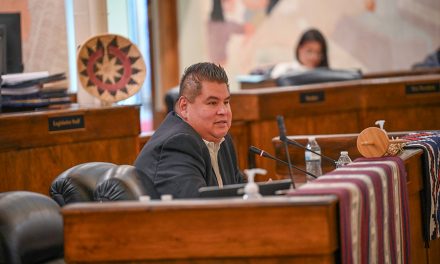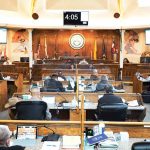
New addiction treatment program in Scottsdale focuses on Natives

Courtesy photo Park Place Recovery, a new addition program in Scottsdale tailored to Native Americans, features spacious common areas that allow for social distancing.
WINDOW ROCK
While the pandemic rages on and gets all the attention, there is another pandemic that must continue to be addressed: addiction.

Courtesy photo
Park Place Recovery, a new addition program in Scottsdale tailored to Native Americans, features spacious common areas that allow for social distancing.
A new residential treatment center in Scottsdale that focuses on Native Americans is almost empty, and the administrator is worried that addicts are avoiding residential treatment because of fear of contracting COVID-19. “We have private rooms with their own bathrooms, and plenty of room for social distancing,” said Dana Achim, administrator of Park Place Recovery, which opened its doors in January and currently has just one client. There is also over an acre of courtyard space with walking paths where clients can exercise or have some quiet time.
The facility has 10 beds and offers 30- to 180-day programs for both men and women. While none of the three people on the administration team is Native, they’ve all had direct experience with addiction — Achim and Behavioral Health Manager Cassi Fortson come from families with addiction histories and Referral Relations Specialist Michael Cunningham is a recovering addict himself, sober since 2012. Cunningham helped the Fort McDowell Apache tribe develop a recovery program tailored to its members.
“Living in Arizona, we’ve realized that this demographic (Native Americans) is really affected and if we want to do something about addiction in this state we really have to cater our program to their needs,” Achim explained. Park Place offers tribally specific ceremonies and consultations with traditional practitioners certified in Red Road to Wellness practices.
With the mental and spiritual aspects of the client taken care of, the program also addresses the physical. “We have people specializing in personal care who can help people who have other health conditions such as diabetes or high blood pressure,” Achim said. “We work on educating them so that by the end of the program they can manage their health conditions themselves.”
Park Place also offers help for clients to get the education they want, be it a GED or certificate training. The program also has relationships with the electricians, pipefitters and ironworkers unions for the clients who want to learn a trade. Those who just want a job to get back on their feet are connected with St. Joseph the Worker, a program that helps people find and maintain employment, including resume-building and interview skills.
As a public service, the Navajo Times is making all coverage of the coronavirus pandemic fully available on its website. Please support the Times by subscribing.
How to protect yourself and others.
Why masks work. Which masks are best.
Resources for coronavirus assistance
Park Place’s lone client at the moment, a young San Carlos Apache man, is impressed enough with the program that he’d like to eventually join it as an employee. “It’s been very life-changing,” he said.
Surprisingly, the fact that it’s tailored to Natives is not what drew this client to Park Place.
“In the past two years I’ve been going from halfway house to halfway house,” he said. “The thing that sets this one apart is that the whole team is qualified behavioral health professionals.” You would think that would be baseline for a recovery program, but according to this young man, it’s not.
Achim agreed that the program prides itself on its level of professionalism. “I’m a social worker, Cassi’s a nurse, our clinical director is a licensed master-level social worker, we have four BHTs (behavioral health technicians) and some certified caregivers,” she said.
She offered that the clients, too, are top-notch … or will be when they get some. “We screen all our prospective clients to make sure they’re motivated to do this program,” she said. “This is not just a passing two to three nights place.”
Aftercare is also emphasized; a client’s connection with Park Place doesn’t stop once he’s discharged.
While Scottsdale is a long way from the Navajo Nation, the program does provide transportation, Cunningham noted.
And Park Place takes AHCCCS FFS, American Indian Health Plan and some other insurance. If you’re not covered, the staff can help you change to a plan that covers you. “I think the main thing to know about us is that we’re doing this from the heart,” said Achim.
Information: Achim at 602-373-0907, Fortson at 480-868-8697 or Cunningham at 480-740-0366.








 Highway 264,
Highway 264, I-40, WB @ Winslow
I-40, WB @ Winslow